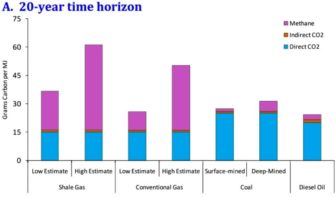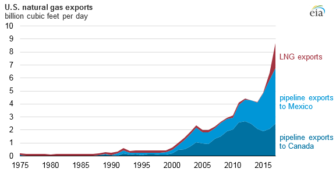1. Oil & gas companies follow tough, self-imposed rules
Voluntary standards, or self-imposed “rules,” work just about as well for the oil and gas industry as they do for your diet in a candy store. You create loopholes and cheat since no one is going to punish you—and you looove that sweet, sweet candy. Same deal with oil & gas companies, except they looove profits rather than candy, and instead of getting fat, breaking the self-imposed rules means chemical spills, explosions, and air pollution.
The only meaningful safeguards are local, state and national rules that apply equally to everyone, and that are strongly and transparently enforced by public agencies. It’s not a perfect system—but it’s better than industry binges while no one’s looking.
2. Natural gas is clean energy
In addition to oil and gas facilities regularly exploding into flames and leaking into our waterways and soil, they also release dozens of normally invisible climate and health-harming pollutants into the air.
Using optical gas imaging technology we can see this normally invisible pollution that may include known carcinogens benzene and toluene, volatile organic compounds and methane.
3. Natural gas reduces climate pollution

Actually, it doesn’t. Natural gas burns cleaner than coal and oil when it’s used (like in our stoves), but it’s still a fossil fuel . From drilling to fracking to transport, natural gas can actually be worse for climate than coal. That’s because natural gas is mostly methane, a dangerous climate pollutant 86 times more potent than carbon dioxide.
The only sure-fire way to reduce greenhouse gas pollution from energy is to keep fossil fuels in the ground.
4. Sign a lease and you’ll be rich
It could happen. A lot of people hope it will happen. But it’s not very likely.
When landmen approach landowners to sign a lease, they promise little impact and monthly checks for years to come. But the amount seesaws along with the price of oil and gas, the fine print of lease terms can be deceptive, and many wells stop producing after just a few years. Some companies even deduct “post-production” costs to reduce royalty payments–leaving landowners on the hook for taxes and processing or transportation costs.
5. We need more oil and gas for energy independence

The U.S. has such a big energy appetite that even with the rush to drill everywhere, we still rely on imports for more than half of what we consume. The energy boom isn’t about getting off foreign oil, as much as it’s about large, multinational corporations getting rich and finding new markets to buy their products. Often this financial frenzy is done on the backs of mostly poor, rural Americans. The more pipelines and export facilities built, the more we commit to exporting our natural resources and internalizing pollution.
Your Support Makes Our Work Possible
Earthworks helps families on the front lines of mining, drilling, and fracking. We use sound science to expose health, environmental, economic, social, and cultural impacts of mining and energy extraction. To support our efforts, please consider a tax-deductible donation today that will go toward our work reforming government policies, improving corporate practices, influencing investment decisions, and encouraging responsible materials sourcing and consumption.


